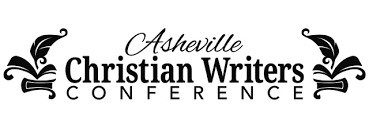Table of Contents
3 Things a Writer’s Conference Should Have
I am just off a weekend at the Asheville Christian Writer’s Conference. After attending my third writer’s conference, I have a little bit of insight into what these type of conferences are supposed to be about, and how it all comes together for the attendee. Writer’s conferences should have 3 components: craft, business, and relationships.

1. Craft
All writer’s conferences should help you grow your craft of writing. Maybe that is remedial grammar classes for people like me. Maybe that is an analysis of prose in certain genres. It could even be the teardown of one-sheets and proposals. Regardless of the methodology, the conference should help you grow your craft as a writer.
For some of us, working on the craft is easier and we want to focus on the business or the relationship sides of writing. However, we cannot neglect the craft of writing, and some of my greatest leaps in writing have come after listening to experts in their particular area of craft.
MUGS
This past conference I heard two particularly great talks. One was titled Myths about MUGS (mechanics, usage, grammar, and structure) by Denise Loock. The other about writing a historical narrative by Craig Von Buseck. I don’t write historical narrative per se, but the class taught me a few things about how interesting the tidbits of history are and how important doing your research can be. MUGS was a great class to learn some of the grammar rules so that I can purposefully break them. Notice how I said purposefully rather than unintentionally generating a comma splice every 250 words or so.
Some of my greatest leaps in writing have come after listening to experts in their particular area of craft. #amwriting Share on X2. Business
If a writer’s conference has a focus on craft, then it should also assist us in the growth of our small businesses. Yes, being an author is like owning a small business. I just filed my taxes, so I would know. Writers need to explore the variety of income streams available to them to not only grow their craft but to find the pot of gold at the end of the rainbow in publishing a best-seller.
When it comes to the business of writing, your prose may be wonderful, your craft intelligent and thought-provoking and your grammar flawless, but it is all for little without a platform. Editors, it seems, now exist to clean up the poor writing of those with large platforms. Platform is industry jargon for how many people will follow you and buy your book. That means social media, websites, blog posts, interviews, retreats, online courses and a host of other things to draw in potential book buyers. Gone are the days of publishers drawing in the crowds to buy your book. Now it is up to us authors to draw the crowds in hopes of drawing publishers. The best conferences give very practical tips and insight into how to build a platform, and how to
Now it is up to us authors to draw the crowds in hopes of drawing publishers. #amplatforming Share on XThe Business of Being an Editor
While I missed some of the breakout sessions of the conference, there was a main session that was incredibly helpful. Ramona Richards of Iron Stream Media gave us insight into the editor’s mind. She coached us through the proposal process and how there are a variety of factors that go into each publishing decision. At the end of the day though, sometimes your work just doesn’t fit that editor or publishing house.
When a small business doesn’t see revenue coming in from a particular product, like book proposals. They shift and change and rework. Small businesses like authors don’t have the luxury of giving up after the first few dozen No’s. We keep working and refining our craft and our platform until we succeed.
3. Relationships
The most overlooked but most important thing a writer’s conference should have is relationships. In non-Christian conferences, this often means making a friend and usually quite a few rivals. Information and writing ideas are closely held and guarded, but as the Bible says, iron sharpens iron. In the Christian context, however, you meet and make prayer warriors, beta readers, and if you are lucky lifelong friends to carry the heavy burden of writing for our faith.
The stereotype about introverted writers holds true, and most of us are reluctant to break out of our shell. I am thankful to have made a few friends at the past writer’s conference. Since this was my third one, I knew to go in with a more open mind. With so many introverts around you can’t know whom you are going to fit with. The most unexpected people are the best ones to get involved with. You never know who is going to be that person to get you out of your shell.
The most unexpected people are the best ones to get involved with. You never know who is going to be that person to get you out of your shell. Share on XMake sure to not just talk about your work, but listen to others talk about their work. Reading other people’s work and helping them through the process is often the best way to improve your own. If nothing else, you can learn what not to do, and build a relationship that might last a lifetime.
The Special Ingredient a Writer’s Conference Should Have: Inspiration
Inspiration is the extra bit that really good writer’s conferences have. They provide you with a sense of community and ability to accomplish the lonely task of pecking at a keyboard for hours and deliberating over this or that word. Keynotes provide hope and food for thought for the many budding writers out there.
One of my favorite talks of all time came from Barbara Brown Taylor on the use of body language. It was a talk about craft with the through-line of inspiration for an audience of new authors. If you ever get to hear it, listen closely because it is well worth the 50 minutes.
Keynotes provide hope and food for thought for the many budding writers out there. Share on XA Successful Writer Is…
At the Asheville Christian Writers Conference Bob Hostetler took us through some of the business aspects of being a writer with the throughline of inspiration. He called us to expand our thinking of what it means to be a successful writer and to be ambitious without chasing our own white whale. Many great writers publish, make a splash, and fall into obscurity. We need to know whom we are writing for and why, so we keep the goal-line ever-present in our head lest we darken the doors of the unpublished depressed and quit altogether.
Inspiration is the special sauce of a writer’s conference. You might be able to build relationships, learn the craft, and create a business without ever leaving your home but will you be inspired and determined enough to carry on in the lonely poorly lit room that many of us tap out our word in?
Writing Resources
If you are a budding writer, great I am too, just a little further along. Having been to several of these conferences few of the teachers go over the very specific nature of beginning online. So I am compiling a list of resources that I have used, as well as some tutorials for anyone interested.
Use the contact me page and use writer in the subject line. I haven’t set up the automated resources channel yet.





